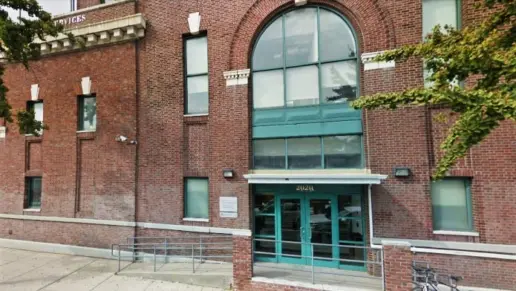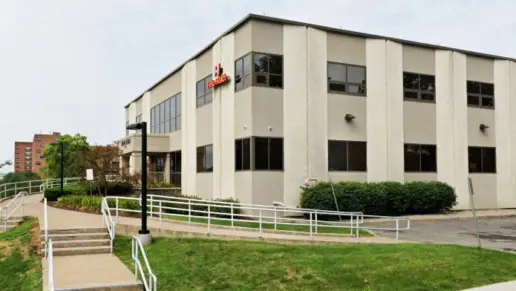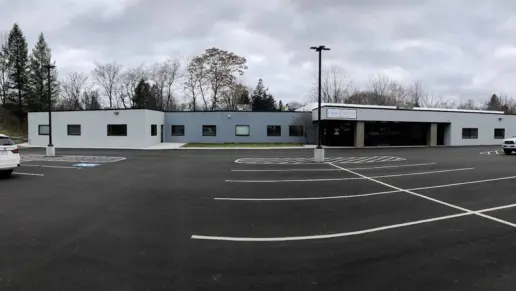About 163-18 Jamaica Ave, Queens, NY 11432
Counseling Service of EDNY Queens is a drug and alcohol rehab and counseling center located in Queens, NY. They provide outpatient addiction treatment and mental health care.
This facility offers an outpatient dual diagnosis substance abuse and mental health treatment, and an intensive outpatient program for individuals involved with the justice system.
Outpatient Treatment
This program treats adults who are experiencing mental illness and substance abuse issues simultaneously. Treatment consists of individual and group therapy, relapse prevention, psychiatric evaluation, medication-assisted treatment, psychoeducation, and vocational training and assistance. There is also an adolescent program for kids and young adults aged 16 through 25 that focuses on social and emotional development within a peer-oriented dynamic.
Alternatives to Incarceration Program
This is an intensive outpatient program for adults aged 18 and older who have been referred by the NYC Drug Court system, NYC Treatment alternatives to the Street, or Nassau County court diversion programs. This program is four to five days per week of treatment and two random drug tests. Treatment consists of individual and group therapy, psychiatric evaluation, medication management, relapse prevention, and educational and vocational services.
Insurance
CSEDNY may work with your insurance provider. Verify your coverage and out-of-network benefits prior to beginning treatment.
Latest Reviews
Rehab Score
Accepted Insurance
Other Forms of Payment
Private insurance refers to any kind of healthcare coverage that isn't from the state or federal government. This includes individual and family plans offered by an employer or purchased from the Insurance Marketplace. Every plan will have different requirements and out of pocket costs so be sure to get the full details before you start treatment.
Self-pay involves paying for treatment out of your own pocket. You can use savings or credit, get a personal loan, or receive help from family and friends to fund your treatment. If you don't have insurance or your insurance plan doesn't cover a specific program, self-pay can help ensure you still get the care you need.
Financial aid can take many forms. Centers may have grants or scholarships available to clients who meet eligibility requirements. Programs that receive SAMHSA grants may have financial aid available for those who need treatment as well. Grants and scholarships can help you pai for treatment without having to repay.
Sliding scale payments are based on a client's income and family size. The goal is to make treatment affordable to everyone. By taking these factors into account, addiction recovery care providers help ensure that your treatment does not become a financial burden to you or your family, eliminating one barrier to care.
Medicare is a federal program that provides health insurance for those 65 and older. It also serves people under 65 with chronic and disabling health challenges. To use Medicare for addiction treatment you need to find a program that accepts Medicare and is in network with your plan. Out of pocket costs and preauthorization requirements vary, so always check with your provider.
Military members, veterans, and eligible dependents have access to specific insurance programs that help them get the care they need. TRICARE and VA insurance can help you access low cost or no cost addiction and mental health treatment. Programs that accept military insurance often have targeted treatment focused on the unique challenges military members, veterans, and their families face.
Medicaid is a state based program that helps lower-income individuals and families pay for healthcare. Medicaid covers addiction treatment so those enrolled can use their coverage to pay for rehab. When a program accepts Medicaid the client often pays very little or nothing out of their own pocket.
Addiction Treatments
Levels of Care
Programs


Clinical Services
Men and women receive emotional support from their peers during group therapy sessions. These are typically people who face the same struggles that you do. This exposure fosters a sense of camaraderie and community while reducing feelings of isolation and loneliness that often accompany addiction.
Men and women in New York undergoing one on one individual therapy for drug and alcohol addiction treatment will address the unique psychological and emotional aspects that are often associated with addiction triggers. Your therapist helps you build a relapse prevention plan and set achievable goals to improve your mental health and achieve long term sobriety.
Family therapy helps individual members of the family unit navigate the complexities of addiction. Therapists provide you with the tools you need to improve communication skills and conflict resolution. When families work together, they can support their loved one's recovery and help to restore balance and harmony within the household.
Contact Information
163-18 Jamaica Ave
Queens, NY 11432














